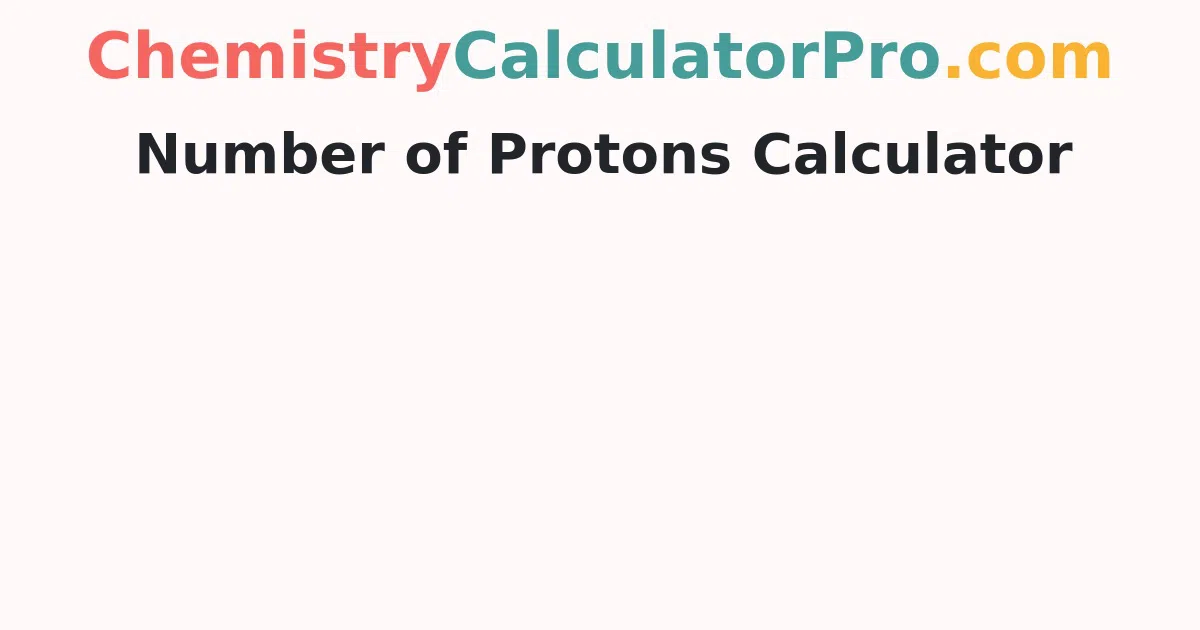Number of Protons Calculator
The amount of protons in each of an element's atoms determines its identity. The amount of protons in an atom defines the element, regardless of how many electrons or neutrons it has. In fact, an atom made up entirely of protons is theoretically possible (ionized hydrogen).
What are Protons?
Protons are positively charged particles that make up a hydrogen atom's nucleus. Protons, electrons, and neutrons are the building blocks of an atom. An atom's whole mass is concentrated in the nucleus, which is located in the centre. Nucleons are protons and neutrons that make up the nucleus. The nucleus is surrounded by electrons in circular orbits.
What is the Proton Mass?
A proton has a mass of 1.6726219 x 10^-27 kilogrammes. Protons have a positive charge, electrons have a negative charge, while neutrons do not have a charge. In an atom, the number of protons and electrons are equal. As a result, an atom's electrical charge is zero.
Characteristics of Proton
The proton is a positively charged particle that possesses the following characteristics:
Proton Mass - A proton's mass is equal to that of a hydrogen atom. One electron and one proton made up the hydrogen atom. The mass of a hydrogen atom can be considered to be equal to the mass of a proton because the mass of an electron is deemed negligible. The mass of a proton is 1840 times that of an electron.
Mass of proton - 1.676 × 10-27 kg = 1.676 × 10-24 g = 1.6726219 × 10-27 kg
Proton Charge - The charge of a proton is the same as that of an electron, except it is in the opposite direction. It has a single positive charge as a result.
Charge on a proton = + 1.602 × 10^-19 coulombs
FAQ on Number of protons
1. How can you find out how many protons there are?
Use the atomic number and mass number to compute the number of subatomic particles in an atom: The atomic number is equal to the number of protons. Atomic number = number of electrons.
2. Is it true that all protons are the same?
All protons are the same. For example, Protons of hydrogen are identical to those of helium and all other elements or pure substances. However, the amount of protons in different elements' atoms varies. The electrical charge of the nucleus is determined by the number of protons in an atom.
3. Why is a proton the same as an electron?
The protons, which have a positive charge, the electrons, which have a negative charge, and the neutrons, which have no charge, are the three atomic particles of an atom. Protons and electrons must balance each other in order for the atom to remain electrically neutral.
